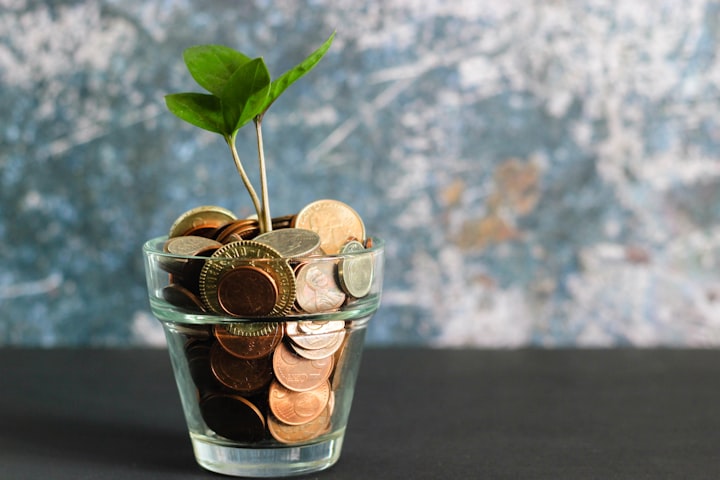21 small actions that help you make big savings
A wise saying goes, "grain with grain fills the grain sack"

Just as we clean our house regularly, so should we clean our finances. Often, a few small changes can lead to big savings in the long run, both in terms of time and money.
We have prepared below a list of 21 such actions through which you can also save:
1. Current account - no fees
As many current accounts offer without administration fees, transfer fees, and any other fees exist, it would be a shame not to benefit. I know at least 3 banks that offer such an account.
2. Use a credit broker
It will save you time looking for yourself, it will find you the best deals on the market and it won't cost you anything. The financier will pay it.
3. Quit smoking
Simple to say, harder to do, but well worth it. It will save you money, health, and time.
4. Switch from the card subscription or to a cheaper operator
Practically with 5 EUR + VAT, you will have minutes and almost unlimited net. It's not worth keeping a subscription just because you can buy a phone at a discount. You better buy the phone directly.
Alternatively, you can renegotiate your phone subscription or switch to a cheaper operator. You can get much better deals for the same money or even for less money.
5. Get discounts
There are many ways in which you can get discounts: loyalty cards, cash back credit cards, cashback sites and there are also regular discounts that merchants make. I advise you to take advantage of them, of course, given that you need what you want to buy.
Patience is rewarded. Make a list of products/services you want and aim to get an offer. Make sure the discount is real.
6. Make barters
If you have skills that can be used, in addition to a classic job, you can make barters with those who need what you have to offer. I have had countless occasions making bartenders offering coaching services or my sales skills in exchange for various services.
7. Shopping list
I know it's a very "original" idea:)))) but it works like a dream. A simple list of what you need leaves room for 1-2 additional things and is guaranteed you will have substantial savings on shopping.
8. Clean your room, closet, and life
We have a bad habit of storing a lot of old and useless things in the house and we tend to always add new things. Maybe it's time to do a "general cleaning" and throw away what you no longer need (or give a gift to those who need it) and stop operating on a minimalist level. Seriously, do you need all those clothes, books, decorations, children's toys, etc.?
9. Cycling, walking, public transport
It helps you to exercise and save money and possibly even relax. I relax when I walk. I walk even long distances of several kilometers.
10. Write down all your expenses in an application or a personal budget
This simple habit can reduce your costs by 5-10% per month, without even realizing it.
11. Apply the 30-day rule
When you are tempted to make a big purchase (electronics, appliances, etc.), do not buy them on the spot. Wait 30 days and think about whether you need that purchase or if it was a fad. Most of the time, after 30 days, any fad will pass.
It also calculates how many working days a particular product or service represents. For example, if you earn 50 EUR per day and a product costs 500 EUR, it means 10 full working days. Make sure it's worth it.
12. Use price comparators sites
If you still want to make a more important purchase, use the sites that find the lowest prices on the market for a certain product.
13. Observe what you constantly throw out of the fridge
And don't buy anymore!
Maybe there are certain products that you consider healthy or that you think will be useful in the future, but that often end up in the trash. I've often had stocks of fruit or milk and cereal (I've heard they're healthy) and I've thrown them away many times. Maybe it would be better to buy only what is eaten, not what would be ideal to eat.
14. Order less food in town
Hahaha - sounds very funny, but it's not. We become aware of the state of satiety after we have already had enough. For this reason, we feel very full after many meals. It would be better to order less from the beginning and eat slower (it's also healthy). We will notice that we are tired, we feel even better and we also saved money.
Second, cooking, even at the basic level, can be an essential skill in many contexts, such as a pandemic. ⁇
15. Buy products from hard-to-reach shelves
Don't rush to buy the products on the middle shelves, the most easily accessible. Know that these are the most expensive products. Traders make money from manufacturers to place your product on those shelves.
Also, look at the bottom or top shelves. You may find similar products at much lower prices.
16. Don't go shopping when you're stressed
When you are stressed, your brain is flooded with cortisol (the stress hormone). It is not the best time to go shopping because you will buy a lot, expensive and meaningless. Your brain will urge you to do anything to get a little momentary satisfaction (gratification). You will do impulsive shopping.
Better a poor horse than no horse at all. You take a long walk ahead, hug someone (or a tree :)), talk to someone who validates you and only then do you go shopping. This way you will save money. You'll see.
17. Sleigh in winter and summer
Buy what you will need after Christmas Next Christmas, after the summer you will need what you need next summer, and so on.
18. Buy Supermarket's own brands
Maybe for some products, you want top-quality that a certain brand guarantees you, but for other products, you may just want utility and nothing more. You should know that, in general, the store's brand products are cheaper and often comparable in quality to those of famous brands.
The lower price is mainly due to the very low marketing costs of the branded products. They do not need too much publicity and do not have various costs of listing and keeping on the shelf, as do other products.
Maybe it would not be a bad idea to focus on this type of product, at least to test them first. You may be surprised at the quality as well as the economy.
19. Relax with your loved ones
First of all, seek to spend quality time with your loved ones, and secondly, spend your time inexpensive places.
I was inexpensive places with people less dear to me and in affordable places, but with people dear to me. The second type of experience was always more enjoyable and useful.
Be balanced in choosing places where you spend your free time. Not every outing needs to cost you a fortune. You can very well spend your time in a pleasant and relaxing way and at a picnic, visiting a friend who has a yard, a neighborhood restaurant, or a park.
20. Pay close attention to fixed costs
Whether we are talking about subscriptions, utilities, or recurring expenses, always calculate the annual cost, not the monthly one. For example, if you have a subscription of 10 EUR per month, it may not seem like a lot 10 EUR, but in a year, it means 120 EUR. If you have 2-3 such subscriptions that can be eliminated/optimized because they do not bring you an important benefit, with the money for a year you make a mini-vacation in the mountains.
21. No consumer debt
After taxes, interest is the biggest expense that people incur throughout their lives. If a mortgage is still acceptable, I see no reason why you should take and maintain a personal loan.
Do your best to get rid of debt.
P.S. If you like to read while drinking coffee, you can offer me a coffee too.
About the Creator
Sebastian Voice
Hi
Writing is an art, the art of being known without being seen.
Writing hides a face, a feeling, a thought, a desire, a mystery.
I'm a dreamer!





Comments
There are no comments for this story
Be the first to respond and start the conversation.